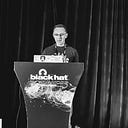You might find this to be a fitting prologue to my earlier post on Creating and using JVM instances in Android C/C++ applications… and you are right !! Well, consider this my way of enticing you by presenting the end goal you’ll eventually reach. After all, it’s not uncommon to wade through various write-ups without a clear understanding of their objectives.
With that said, if you’re interested in or considering exploring fuzzing, this serves as a step-by-step guide on configuring AFL++ and employing it to fuzz Android binaries. I’ll try to keep it short and avoid boring paragraphs of type …how-to-set-up-your-Android-pentest-lab. After all if you don’t know what fuzzing or what AFL is, there are thousands of write ups out there in order to get you started.
I followed this step-by-step guide to set up AFL++ (Frida mode) on my MacBook Pro M1 running Sonoma v. 14.4.1, but I doubt you’ll encounter many challenges with your system.
Setting up AFL++
- Download the latest release here: https://github.com/AFLplusplus/AFLplusplus/releases/ and extract the compressed files.
- Install the Android-ndk using brew:
$brew install -- cask android-ndk
$export ANDROID_NDK_HOME="/opt/homebrew/share/android-ndk"Set the ANDROID_NDK_HOME persistently, so you won’t need to redefine it every time you start a shell session. Depending on your OS and shell, you may add the line export ANDROID_NDK_HOME='/opt/homebrew/share/android-ndk' to your shell configuration file (e.g. ~/.zshrc in case you are using zsh).
3. Download the following CMAKE file and save it under the directory you extracted AFL (in step 1):
https://github.com/Ch0pin/android-fuzzing/blob/main/AFLplusplus/CMakeLists.txt
If you face any issue with the above you ming thave to change this part:
execute_process(
COMMAND
bash -c "echo 'unsigned char api_js[] = {' > ${API_C}; \
xxd -p -c 12 ${API_JS} | sed -e \"s/\\([0-9a-f]\\{2\\}\\)/0x\\1, /g\" \
| sed -e \"s/^/ /\" >> ${API_C}; \
echo '};' >> ${API_C}; \
echo \"unsigned int api_js_len = $(stat --printf='%s' ${API_JS});\" \
>> ${API_C}"
)As follows:
execute_process(
COMMAND
bash -c "echo 'unsigned char api_js[] = {' > ${API_C}; \
xxd -p -c 12 ${API_JS} | sed -e \"s/\\([0-9a-f]\\{2\\}\\)/0x\\1, /g\" \
| sed -e \"s/^/ /\" >> ${API_C}; \
echo '};' >> ${API_C}; \
echo \"unsigned int api_js_len = $(stat ${API_JS} | cut -d ' ' -f 8);\" \
>> ${API_C}"
)4. Save the following script under the directory you downloaded AFL and run it in order to compile the afl-fuzz and afl-frida-trace.so:
mkdir build && cd build
cmake -DANDROID_PLATFORM=31 \
-DCMAKE_TOOLCHAIN_FILE=/opt/android-ndk-r25c/build/cmake/android.toolchain.cmake \
-DANDROID_ABI=arm64-v8a ..
makeYou may need to change the DCMAKE_TOOLCHAIN_FILE value with the location of the ndk. In case it is installed with Brew, this path will be under the /opt/homebrew/Cascroom/android-ndk
If everything worked as expected
You may find the afl-fuzz and afl-frida-trace.so under the ./build path. Use adb to push these binaries in /data/local/tmp:
$adb push afl* /data/local/tmpGive execute access to the afl-fuzz . If you followed my guide, you probably know what to fuzz. Indicatively, assuming that the binary you want to fuzz is called ‘fuzz’ :) you may start with:
./afl-fuzz -O -G 256 -i in -o out ./fuzz:
